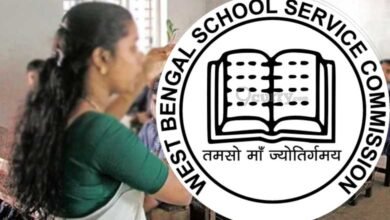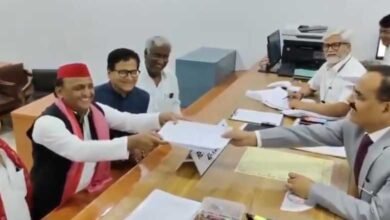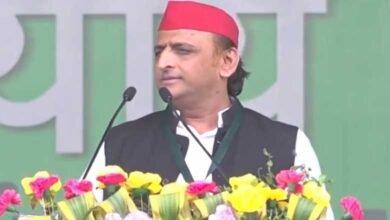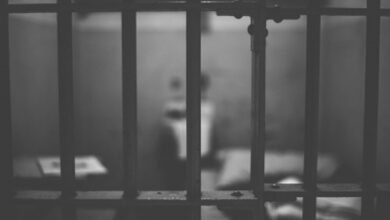Place of Worship Act: SC grants Centre more time to file counter affidavit
In a series of petitions challenging the Places of Worship (Special Provisions) Act 1991, the Supreme Court on Tuesday once again granted the Centre additional time to submit a counter affidavit.

New Delhi: In a series of petitions challenging the Places of Worship (Special Provisions) Act 1991, the Supreme Court on Tuesday once again granted the Centre additional time to submit a counter affidavit.
Considering the far-reaching implications of the case, the bench led by Chief Justice of India D.Y. Chandrachud, along with Justices P.S. Narasimha and Manoj Misra, directed the Centre to file its response by October 31.
During the hearing, Vrinda Grover, appearing for Jamiat Ulema-i-Hind, urged the court to consider a plea for stay of proceedings.
“There is an interim application seeking stay. Across the country matters are being litigated while the Act is in place. As on today, the Act applies,” Grover said.
However, the court said that it cannot utilise the Act to impose a blanket stay on ongoing suits and legal proceedings in various courts throughout the country regarding disputed religious sites.
The bench said that each party involved in a specific case must individually request a stay from the respective court, highlighting the existence of the Act and noting that it has not been stayed by the Supreme Court.
Former Rajya Sabha MP Subramanian Swamy also appeared before the court and expressed his belief that the Centre is showing a tendency to seek an adjournment in the matter, emphasising the need for it to be scheduled for a final hearing.
In January this year, the apex court had extended the time for the Central government to file its response on a batch of petitions challenging the validity of certain provisions of the Act 1991.
It gave the Centre until the end of February 2023 to file its response.
On November 14 last year, the Supreme Court granted time to the Central government till December 12 to file a comprehensive affidavit on petitions challenging the validity of certain provisions of the Act.
On October 21, the bench had directed the Centre to file an affidavit on or before October 31. It listed the matter for further hearing on November 14.
On March 12, 2021, a bench headed by then Chief Justice S.A. Bobde had sought the Centre’s response on the plea filed by advocate Ashwini Upadhyay, one of the petitioners’ in the matter, challenging the validity of certain provisions of the law.
Upadhyay’s plea had said: “The 1991 Act was enacted in the garb of ‘Public order’, which is a State subject (Schedule-7, List-II, Entry-1) and ‘places of pilgrimages within India’ is also State subject (Schedule-7, List-II, Entry-7). So, the Centre can’t enact the Law. Moreover, Article 13(2) prohibits the State to make law to take away fundamental rights but the 1991 Act takes away the rights of Hindus Jains Buddhist Sikhs to restore their ‘places of worship and pilgrimages’, destroyed by barbaric invaders.
“The Act excludes the birthplace of Lord Rama but includes the birthplace of Lord Krishna, though both are incarnations of Lord Vishnu, the creator and equally worshiped throughout the word, hence it is arbitrary.”




